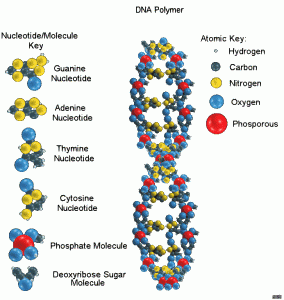 Alexithymia is a manifestation of a deficit in emotional cognition. People with this problem are mostly unaware of their feelings, or don’t know what they signify, and hence they rarely talk about their emotions or their emotional preferences; they operate in a very functional manner and rarely use imagination to focus their drives and motivations. Alexithymia refers to this distinctive cluster of characteristics.
Alexithymia is a manifestation of a deficit in emotional cognition. People with this problem are mostly unaware of their feelings, or don’t know what they signify, and hence they rarely talk about their emotions or their emotional preferences; they operate in a very functional manner and rarely use imagination to focus their drives and motivations. Alexithymia refers to this distinctive cluster of characteristics.
In a recent study published in NeuroImage, a team of researchers demonstrate that “the skills involved in comprehending the self and others are inter-related and play an important role in emotion regulation”.
Abstract:
Impaired self-awareness and theory of mind: an fMRI study of mentalizing in alexithymia.
Moriguchi Y,
Ohnishi T,
Lane RD,
Maeda M,
Mori T,
Nemoto K,
Matsuda H,
Komaki G
Alexithymic individuals have difficulty in recognizing and describing emotions in themselves. We investigated the neuronal basis of mentalizing in alexithymia to determine whether there is a common neuronal substrate associated with knowing the mental states of the self and others. Individuals high in alexithymia (n = 16) and low in alexithymia (n = 14) were selected from a pool of 310 college students using a combination of the Toronto Alexithymia Scale (TAS-20) and the Structured Interview version of the Beth Israel Questionnaire (SIBIQ). We compared the two groups on psychological measures, including ratings of mentalizing and the Interpersonal Reactivity Index (IRI), and regional brain activation using functional magnetic resonance imaging (fMRI) during a mentalizing animation task. The results for both groups showed activation in regions associated with mentalizing: medial prefrontal cortices (MPFC), temporo-parietal junctions (TPJ), and the temporal pole (TP). Alexithymics had lower mentalizing and IRI perspective-taking scores and less activation in the right MPFC. Activity in the MPFC was positively correlated with the mentalizing score and the IRI perspective-taking score. Although there were no group differences in cerebral activity in the TPJ and the TP, the activity in the right TP had a positive correlation with mentalizing and IRI personal distress scores. These results suggest that alexithymic individuals have an impairment in mentalizing associated with an inability to take the perspective of others. Thus, the skills involved in comprehending the self and others are inter-related and play an important role in emotion regulation.
 Abstract · PubMed
Abstract · PubMed  FullText
FullText
 Alexithymia is a manifestation of a deficit in emotional cognition. People with this problem are mostly unaware of their feelings, or don’t know what they signify, and hence they rarely talk about their emotions or their emotional preferences; they operate in a very functional manner and rarely use imagination to focus their drives and motivations. Alexithymia refers to this distinctive cluster of characteristics.
Alexithymia is a manifestation of a deficit in emotional cognition. People with this problem are mostly unaware of their feelings, or don’t know what they signify, and hence they rarely talk about their emotions or their emotional preferences; they operate in a very functional manner and rarely use imagination to focus their drives and motivations. Alexithymia refers to this distinctive cluster of characteristics.





